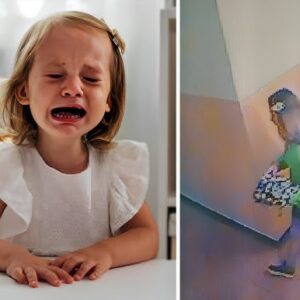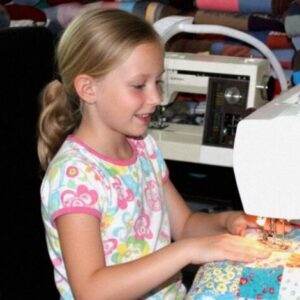My mother-in-law accused me of leaving used pads in her bathroom.
It started so stupidly, I almost laughed. I’d just come back from a quick visit to her place when she called me, voice tight and dripping with disapproval.
“Next time you come over,” she snapped, “take your used pads with you. I’m not your maid.”
I blinked, thrown. “I don’t use pads,” I said, confused. “I use tampons.”
She didn’t miss a beat. “Well, they’re not mine. So don’t lie. Next time, clean up after yourself.”
It stung more than it should have. Not just the accusation itself, but the tone—the implication that I was dirty, careless, disrespectful. We’ve never been best friends, she and I, but this felt… pointed. Personal.
When my husband got home, I told him what happened, expecting an eye roll or a half-hearted “That’s just how she is.” Instead, his face went completely pale. He stared at the floor like someone had kicked the air out of him.
“What’s wrong?” I asked.
He swallowed. “That doesn’t make any sense.”
“What do you mean?” I pressed.
He rubbed the back of his neck, still not looking at me. “My mom had a hysterectomy years ago. She doesn’t get her period. At all. Hasn’t for a long time.”
My brain stalled. “Then who…?”
“I don’t know,” he said quietly. “But something’s not right.”
I went to bed that night angry, then unsettled, then wide awake with my mind spinning. I wasn’t just insulted by her accusation anymore—now I was curious. Why lie about something she physically couldn’t have done? Why push so hard to pin it on me?
My husband didn’t sleep much either. I could hear him tossing beside me, muttering to himself in the dark.
The next morning, I told him I wanted to go back to her house. Not to scream or make a scene—just to clear the air. To push for an answer that made sense.
He hesitated. “Please don’t turn it into a fight.”
“I won’t,” I promised. “But I’m not going to pretend it didn’t happen.”
When we arrived, my mother-in-law acted like everything was perfectly normal. She offered us coffee, asked about work, about our dog. Her performance was so smooth it made my skin crawl.
I put the mug down. “About yesterday,” I began.
She rolled her eyes immediately. “You’re still going on about that? I thought we were done.”
“No,” I said, keeping my voice steady. “Because you blamed me for something I didn’t do. And we both know it couldn’t have been you either.”
Her expression changed—just for a second. A flicker of something like panic. Then her face hardened. “Are you calling me a liar?”
“I’m saying,” I replied carefully, “that either you’re not telling the whole truth, or someone else is. Because I know it wasn’t me, and it can’t be you.”
She folded her arms and turned to my husband. “Is this why you brought her here? To gang up on me?”
“Mom,” he said, shifting in his chair, “just be honest. If it wasn’t you and it wasn’t her, then who—”
“Enough!” she snapped, slamming her hand on the table. “I said it was her. I’m not talking about this again.”
We left not long after. My husband was quiet, torn between frustration and loyalty. I was quiet for a different reason—I knew we’d just hit a wall, and she was hiding something behind it.
I couldn’t let it go.
A week later, I went back alone.
My husband wasn’t thrilled. “Please don’t stir it up again,” he pleaded. “We got some kind of answer. Just leave it.”
“But it wasn’t the truth,” I said. “And whatever she’s hiding, it’s big enough that she’d rather insult me than admit it.”
I knocked on her door late in the afternoon. She answered in a housecoat, surprised to see me.
“Forgot something?” she asked flatly.
“No,” I said. “I wanted to talk. Just you and me.”
She exhaled sharply but stepped aside. “Fine. Come in.”
We sat at the same table as before. No coffee this time.
“I know it’s not you,” I began. “And you know it’s not me. Which leaves only one option: someone else is here. Or has been. And you don’t want anyone to know.”
Her jaw clenched. For a moment, she didn’t speak. Then, without looking at me, she said, “You really want the truth that badly?”
“Yes,” I said. “I do.”
She stared toward the hallway for a long, tight second, then stood up. “Wait here.”
I sat there, heart pounding, listening to muffled voices and footsteps. A minute later, she came back.
And she wasn’t alone.
A teenage girl followed behind her—sixteen, maybe seventeen. Pale, thin, shoulders slightly hunched. Her hair was pulled back into a loose ponytail, and her eyes were full of caution, like a skittish animal that wasn’t sure whether to stay or run.
“This is Natalie,” my mother-in-law said, her tone clipped. “She’s… my daughter.”
The words didn’t register at first. “Your… what?”
“My daughter,” she repeated, staring at me, daring me to react. “From after I divorced my first husband. After your husband’s father. No one knows about her. Not even him. I’ve been raising her here. Quietly.”
I stared between them, my mind racing. “You’ve had a daughter living here this whole time—and you never told your own son?”
She lifted her chin defensively. “People judge. They talk. I didn’t want to hear my family’s opinions about my choices. It was easier this way. I homeschooled her. Kept her out of drama. It’s nobody’s business.”
“And the pad?” I asked quietly.
Her shoulders sagged a fraction. “It was hers,” she admitted, glancing at Natalie. “She’s at that age. She forgot to throw it away properly. I saw it after you left. I panicked.”
“So you blamed me,” I said, a mix of anger and understanding twisting in my chest.
“Yes,” she said, voice sharper now, but it sounded like the edge came from shame, not cruelty. “It was stupid. I know. But I wasn’t going to stand there and explain my secret child to you in the middle of an argument over a sanitary pad.”
I looked at Natalie. She was staring at the floor, picking at her fingers. “Hi,” I said softly.
She gave a small, nervous smile. “Hi.”
Up close, I could see it clearly—the same eyes as my husband, the same curve of the cheekbones. This wasn’t some random kid. This was family.
“Does he know?” I asked, already knowing the answer.
My mother-in-law shook her head. “No. And I’m asking you not to tell him. Not yet.”
I went home carrying a secret that wasn’t mine, but now touched everything.
That night, I sat my husband down and told him everything.
He listened without interrupting. His face went blank in that way people go when they’re experiencing more emotions than they can process at once.
When I finished, he stared at the wall for a full minute.
“She had another kid,” he finally said, voice low, “and just… never told me?”
“I don’t think she did it to hurt you,” I said carefully. “I think she did it to protect herself—from judgment, from questions, from the family gossip machine. It’s not an excuse. But it is a reason.”
He let out a bitter laugh. “So I grew up thinking I was her only child. And all this time… my sister was hidden down the street.”
He was hurt. Deeply. Not just by the secret, but by what it implied about his place in his mother’s life.
After a few days of silence, anger, and restless pacing, he called her.
“I want to meet her,” he said. “If it’s true, I want to meet my sister.”
He went to see them alone. When he came back that evening, his eyes were red and swollen.
“Well?” I asked gently.
“It’s true,” he said, sinking onto the couch. “She introduced us. Natalie.” His voice softened a touch when he said her name. “She’s… quiet. Smart. You can tell she’s scared of everyone. Like she’s waiting for someone to tell her she shouldn’t exist.”
“How do you feel?” I asked.
He shook his head, overwhelmed. “I’m angry at my mom. But… she’s still my sister. That part isn’t her fault.”
After that meeting, everything shifted.
At first, my mother-in-law barely spoke to me. She’d answer direct questions, but there were no extra words, no invitations. I think she was embarrassed that I had found out first. That I had seen the secret she’d hidden from everyone, even her own son.
But Natalie started coming around.
The first time she visited our place, she stood in the doorway like she wasn’t sure she was allowed to cross it. We invited her into the kitchen, and I asked if she wanted to help bake cookies.
“I’ve never baked before,” she said, almost apologetically.
“You’re in for a treat, then,” I smiled.
She watched me crack an egg with one hand and gasped. “How did you do that?”
I laughed. “Years of practice. You’ll get there.”
By the time the cookies were done, she had flour on her nose and a smile on her face. My husband watched her from the table, quietly, like he was trying to absorb every second of this new reality—that he had a sister, and she was standing in his kitchen laughing over cookie dough.
“She missed out on so much,” he said later, when she’d gone home. His voice was soft but heavy.
“She’s still young,” I said. “There’s time.”
As the months passed, she started coming by more. Movie nights. Board games. Random afternoons where she’d show up with a book under her arm and ask if she could “study here.” She started calling me her “cool older sister,” which made me choke up the first time she said it.
Then one night, over lasagna at our place, she dropped a new kind of bomb.
“I want to find my dad,” she said.
The room went quiet.
My mother-in-law stiffened. “No,” she said immediately. “He doesn’t deserve that. He left. That’s all you need to know.”
Natalie didn’t argue out loud. She just went quiet in that way kids do when they’re used to swallowing their questions.
Later that night, when I was doing dishes, she slipped into the kitchen.
“Do you think it’s wrong that I want to know him?” she asked.
I looked at her, at this girl who’d been hidden like a secret and now just wanted to see where the other half of her story came from.
“No,” I said honestly. “Wanting answers doesn’t make you disloyal. It makes you human.”
“Will you help me?” she asked.
I hesitated. This was her mother’s territory. Her history. But I also knew what it was like to be left with unanswered questions that ate you from the inside.
“I’ll talk to your brother,” I said. “We’ll figure it out.”
My husband wasn’t thrilled at first. “This is going to blow up,” he said. “You know that, right?”
“It’s already blown up,” I replied. “We’re just pretending it hasn’t.”
In the end, he agreed—not for his mother’s sake, but for Natalie’s.
Finding her father, Robert, took time. There were very few details to go on: a first name, a vague idea of what he used to do for work, a city he might have lived in. We made calls. Searched online. Hit dead ends.
Then one afternoon, my phone rang.
“Hi,” a man’s voice said, a little shaky. “My name is Robert. I got a message that you were looking for me. Something about… a daughter?”
We arranged to meet in a neutral place—a café halfway between his town and ours. I went alone the first time. I wanted to look him in the eye, to see if he felt like a danger or a possibility.
He was nervous. Hands trembling around his coffee cup. He showed me old photos on his phone—him and my mother-in-law, much younger, arms around each other. He told me he knew she was pregnant when they split, that he’d tried to reach out, but she disappeared. Moved. Changed numbers. He never knew if the baby was born, if it was his, if they were okay.
I believed him.
We set up a meeting between him and Natalie.
The first time they saw each other, she stood half-hiding behind my husband, and he stood in the doorway of the café like he’d forgotten how to walk. Then he saw her face.
He broke.
He cried. Right there, in front of everyone. Not dramatic wailing, just this steady stream of tears he couldn’t stop.
“You look like my mother,” he told her, voice cracking. “And like… me. God. I’m so sorry I wasn’t there. I wanted to be. I just—” His words tangled. “I thought you were gone.”
Natalie didn’t throw herself into his arms like a movie. She sat down across from him, watched him carefully, asked questions in a small but steady voice. They talked. About his life now, about her life, about the pieces that had been missing.
It was awkward and beautiful and painful and hopeful all at once.
In the months that followed, they kept in touch. He lived a few hours away, but he visited when he could. They texted, called, watched the same movie over video chat and sent commentary back and forth. It wasn’t perfect. It was real.
My mother-in-law stayed cold to him. But even she couldn’t ignore the way Natalie seemed lighter now that she knew where she came from.
The biggest surprise came on an ordinary Sunday afternoon.
We were all sitting at my MIL’s dining table—my husband, his mom, Natalie, and me—when Natalie looked up from her plate.
“I think I want to go to college,” she said.
Her mom frowned. “You’re not ready for that. It’s a lot. You don’t know anyone. You’ve barely been in public school a year.”
But my husband and I looked at each other and smiled.
“We’ll help you,” he said. “If that’s what you want, we’re behind you.”
And we were.
We helped her research schools. Filled out applications. Found prep classes and tutoring. She worked hard—late nights, endless essays, studying for exams she’d never imagined herself taking.
When the first acceptance letter came, she ran to our house, nearly tackled me in the doorway, and shoved the envelope into my hands, laughing and crying at the same time.
“I got in,” she whispered into my shoulder. “They picked me.”
She’s in her first year now, studying psychology. She says she wants to work with kids who feel “invisible or hidden,” like she did. She commutes, lives part-time with her dad and part-time with her mom, but she still calls us when something big happens, still comes over for dinner, still bakes cookies with me when she needs to clear her head.
Every now and then, when life is quiet and the house is finally still, I think back to that ridiculous, uncomfortable moment in my mother-in-law’s bathroom—the one where she accused me of leaving a used pad in her trash.
If I’d shrugged and swallowed my annoyance, we might’ve let it die as just another weird MIL moment. We never would’ve asked the second question. Never would’ve pushed back. Never would’ve discovered the secret she’d been hiding for years.
And we might never have met Natalie.
No baking lessons. No jokes about being the “cool big sister.” No nervous first steps into public school. No acceptance letter. No girl sitting at our table, telling us she wants to help other kids who feel like they don’t belong.
All of it came from that one ugly accusation.
Life is strange that way. Sometimes the messiest, pettiest conflicts are doors with something much bigger behind them.
If there’s anything I’ve learned from this, it’s this:
Trust your gut when something doesn’t add up. Ask the uncomfortable questions. Be kinder than you feel like being, even when someone is acting ugly—because shame and fear often wear anger as armor. And remember that people carry whole secret worlds inside them, stories they’re terrified to reveal.
Sometimes, all it takes is one person refusing to accept the easy lie to finally bring the truth into the light.
And sometimes, that truth—no matter how messy—can grow into a new kind of family you never saw coming.





